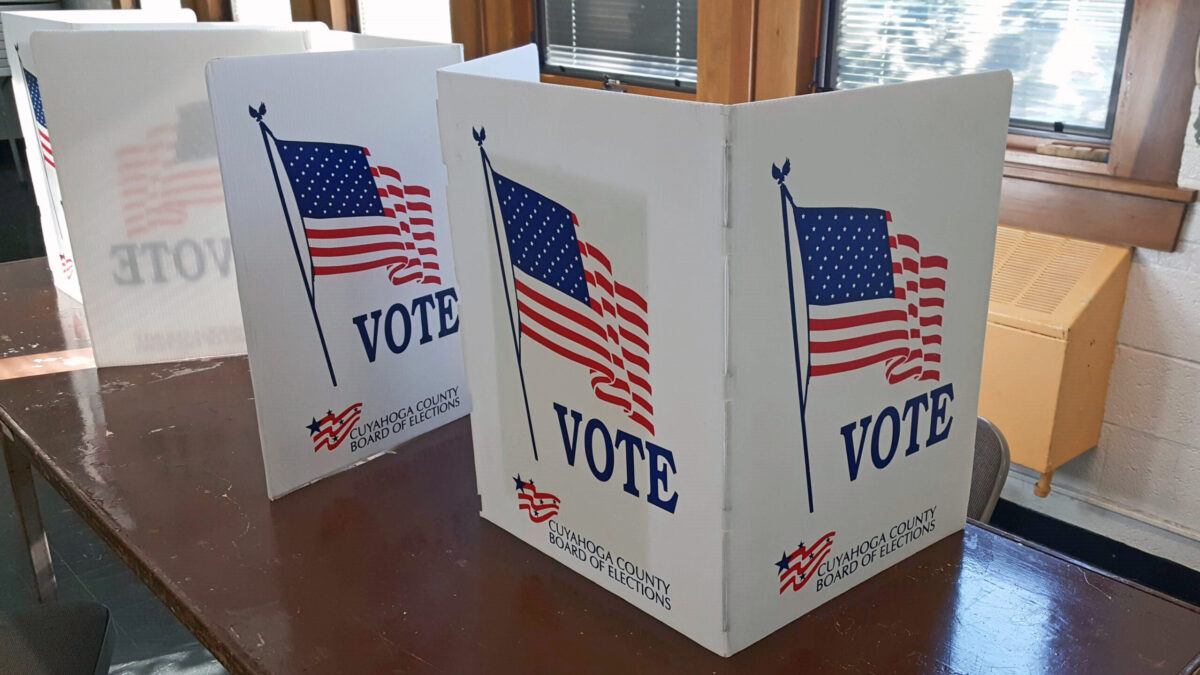Calvin Coolidge, long before he was president, told his state senator father, “It is much more important to kill bad bills than to pass good ones.”
Virginia Gov. Glenn Youngkin must have been channelling old Silent Cal earlier this month when he vetoed Democrat-led bills that would have required the commonwealth to rejoin the leftist-linked Electronic Registration Information Center (ERIC). A report from the Public Interest Legal Foundation on ERIC’s zeal to target for voter registration tens of thousands of ineligible individuals — including the deceased — as “Eligible but Unregistered” shows Youngkin’s instincts were correct.
“I have been explicitly clear about my affirmation of the legitimacy of our elections,” Youngkin wrote in his March 8 veto message. “My focus is safeguarding Virginians’ private information and continuously improving an efficient, cost-effective voter registration system.”
Virginia may have been a founding state member of the voter data-sharing compact in 2012, but by May of 2023 Old Dominion had had enough. As Youngkin noted in his veto message, Virginia’s departure was the result of “persistent management issues, improper data use, escalating costs, and the inability to meet statutory requirements for border state information sharing.”
‘Deceased, Relocated, Ineligible People’
Virginia is among a growing number of states severing ties with ERIC. The multi-state voter roll maintenance partnership has been criticized for pushing expansive voter registration efforts, particularly a requirement that member states reach out to “eligible but unregistered” voters (EBUs) from lists compiled by ERIC.
ERIC “expanded beyond that of its initial intent – to improve the accuracy of voter rolls,” Elections Commissioner Susan Beals wrote upon Virginia’s break with the group.
The Public Interest Legal Foundation obtained records showing that during the commonwealth’s membership in the partnership, ERIC “claimed at least [168,000] deceased, relocated, [or] ineligible people” as EBUs “for taxpayer-funded outreach in Virginia.” State elections officials found and blocked noncitizens, felons, and dead residents from the Eligible but Unregistered lists ERIC compiled, records provided to PILF show.
More troublingly, records from other ERIC-member states obtained by PILF “show similar efforts — or none.”
ERIC requires members to submit voter registration and driver’s license data to its central database. The nonprofit then searches for licensed drivers who haven’t registered to vote: Eligible but Unregistered voters, in ERIC’s parlance.
There’s a problem with ERIC’s all-inclusive mission, however. Often individuals who meet those criteria “either do not want to be registered or cannot legally register.”
“Remember, the National Voter Registration Act of 1993 (NVRA), aka ‘Motor Voter,’ mandates that states like Virginia offer voter registration at DMVs. Meaning, every EBU fed back to Virginia has already said ‘NO’ to a voter registration offer,” the PILF report explains. “Everyone meeting these EBU criteria was submitted to Virginia officials for taxpayer-funded postcard outreach explaining how to register to vote.”
ERIC’s Ties to Zuckbucks and Its ‘Hardcore Leftist’ Founder
In the months before the 2020 presidential election, Virginia’s Democrat-appointed elections commissioner at the time agreed to send out more than 2 million registration reminder postcards to so-called Eligible but Unregistered individuals. According to internal documents, ERIC provided the state a list of about 360,000 EBUs. Notes from a July 29, 2020 meeting between Virginia election officials, ERIC and the left-leaning Center for Election Innovation and Research (CEIR) show “detailed plans for a second round of EBU mailings” to target “about 1.9 million” around Labor Day weekend. The coordinators called the massive mailing effort a “refresh.”
“After the ‘refresh’ mailing and Election Day, Virginia agreed to turn over voter registration and turnout data related to the EBUs to CEIR for its own research purposes and an ‘outreach study,’” the foundation’s report notes.
If CEIR sounds familiar, it’s because the leftist-led center was one of the big benefactors of Zuckbucks. The voter turnout and “election security” nonprofit received nearly $70 million in 2020 election grants from Facebook founder Mark Zuckerberg and his wife Priscilla Chan, or about 70 times more than the organization’s 2017 revenues, according to nonprofit tracker InfluenceWatch.
“CEIR is run by David Becker, an election law attorney and former People for the American Way (PFAW) activist who served in the voting section of the Justice Department Civil Rights Division in the early 2000s,” InfluenceWatch reports. “In 2020, the former acting head of the Civil Rights Division described Becker as a ‘hardcore leftist’ who ‘couldn’t stand conservatives’ and ‘should have been disbarred’ for unethical behavior.”
Guess who was, until recently, on ERIC’s board of directors? David Becker, who founded the voter-roll “management” system.
Records obtained by the Public Interest Legal Foundation showed Virginia elections officials filtered out of its EBU mailings “approximately 100,000 deceased” individuals, about 68,000 people who no longer resided in Virginia, and other ineligible people such as felons and those already registered.
Election officials also have found and removed more than 11,000 “declared non-citizen[s]” from Virginia’s voter rolls since 2014, according to the report. The records obtained by the foundation did not note how many noncitizens were detected in ERIC’s EBU lists.
EBU Mailing Requirements Cited by States Leaving ERIC
“These records from Virginia reveal that states that are members of ERIC need to enact safeguards to ensure they are not sending voter registration postcards to those who are ineligible to vote,” PILF spokeswoman Lauren Bowman told The Federalist. “Some of the states who left ERIC in recent years, cited these mandatory voter registration postcards as part of the reason they left. ERIC should make reforms, so these registration mailings are optional.”
The foundation sought records from four other states — Colorado, Illinois, New Mexico, and Maryland — to investigate how ERIC members attempt to filter out EBU data. Each state had a different way of dealing with people whom ERIC deemed eligible voters — but who aren’t actually eligible to vote at all — with Maryland apparently having “no documents demonstrating any kind of effort describing the process to filter EBU lists for known ineligible persons.”
Just before the 2022 general election, Colorado Secretary of State Jena Griswold confirmed her office “mistakenly” mailed out some 30,000 registration postcards to noncitizens. Democrat Griswold, now best known for her failed attempt to ban Trump from Colorado’s Republican primary ballot, blamed an “analytic error” and insisted the ineligible residents would not be allowed to vote.
“Jena Griswold continues to make easily avoidable errors just before ballots go out,” then-Colorado GOP Chairwoman Kristi Burton Brown said.
As the Public Interest Legal Foundation notes, ERIC’s Eligible but Unregistered program was “ultimately determined to be the catalyst” of the “glitch.”
“PILF dug into the records of the case and saw where state officials were vague with county colleagues about the specific ‘error.’ Colorado quickly built a system to block any foreign nationals who received the EBU cards from completing voter registration before the 2022 midterms. If they had a blocking mechanism for foreign residents, it malfunctioned in 2022,” the report states.
ERIC’s Eligible but Unregistered campaign is risky business, the foundation’s report exposes.
“In principle, encouraging others to register to vote is a noble act; but too easily aliens, felons, and others who are not eligible to vote receive these targeted mailings can wrongly conclude that they are, in fact, eligible,” the report states. “If states are wise, they perform additional work to be good stewards of public resources while simultaneously shielding immigrants and others who are not eligible from receiving instructions about voter registration.”








